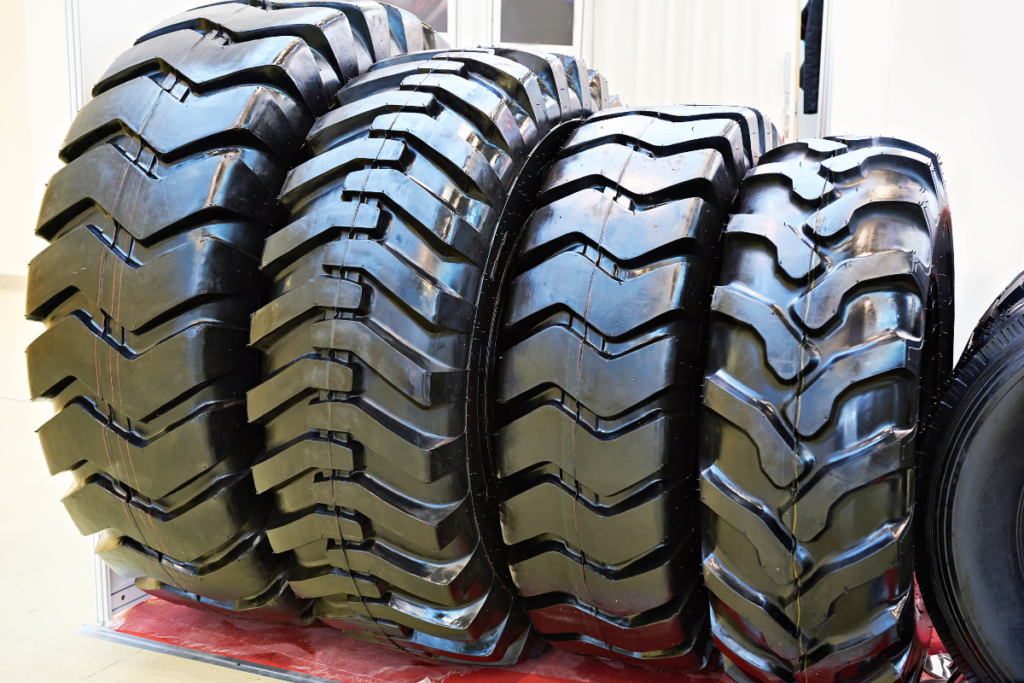Best Tires for Farm Tractors: A Complete Guide

Selecting the right tires for your farm tractors is very important in order to obtain the most out of your mounted machine. These farm tractor tires have to adapt to cover so many areas and roles like moving through the muddy soil, to having to pull loads over graveled areas or even further.
Selecting the appropriate tractors’ tires, variety, characteristics of general tractors’ tires, some of the most used models, how to install and maintain tractors’ tires in detail will be discussed in this guide.
Why Choosing the Right Tractor Tires Matters
Tractor tires are so much more than just rubber bands that have to support the weight of the machine. This element provides a major determinant of producing traction, stability, and performance.
It also found that the type of tires can improve fuel economy on a tractor and overall contouring capabilities on various types of grounds. Harms include_damage to crops and or soil, possible damage to the tractor; and increased costs.
Key Benefits of Using High-Quality Tires:
- Improved Traction: Have the right grip for your tractor so as to operate effectively especially in wet or deformed fields.
- Enhanced Stability: Good and appropriate type of tires make sure that the tractor does not roll over.
- Increased Durability: Durability kicks in, this being the rationale for high-quality tires not to wear out easily.
- Fuel Efficiency: Good ground adhesion reduces the overall workload on your tractor and therefore uses less fuel.
Different Types of Tractor Tires
There are various types of farm tractor tires designed for different tasks and terrains. Choosing the correct tire type for your needs is critical to ensure optimal performance.
| Tire Type | Description | Best Used For |
| R-1 Agricultural Tires | Also called “lug” tires, these are the most common tractor tires. They have deep treads for traction. | Best for dry, soft ground such as loose soil or farmland. |
| R-1W Tires | Similar to R-1 but with deeper treads, providing more traction in wet conditions. | Ideal for wet or muddy fields. |
| R-2 Rice and Cane Tires | Extremely deep tread to handle water-logged areas like rice paddies. | Best suited for very wet, swampy areas. |
| R-3 Turf Tires | Shallower treads designed to minimize damage to grassy surfaces. | Ideal for lawns, golf courses, and delicate turf. |
| R-4 Industrial Tires | Designed for construction and industrial applications, featuring a harder, more durable design. | Best for hard surfaces like pavement or gravel. |
| F-2 Front Tires | Narrow and ribbed front tires often used on 2WD tractors. | Designed for steering and use in conjunction with rear traction tires. |
Features and Benefits of Different Tractor Tires
| Tire Type | Key Features | Benefits |
| R-1 Agricultural Tires | Deep treads, heavy-duty construction | Maximum traction in soft soil, long-lasting wear |
| R-1W Tires | Extra deep treads, resistant to wet conditions | Excellent performance in muddy conditions |
| R-2 Rice and Cane Tires | Extremely deep lugs, water-resistant materials | Superior traction in water-logged areas |
| R-3 Turf Tires | Shallow treads, wide surface area | Minimal damage to grass, reduced soil compaction |
| R-4 Industrial Tires | Harder compound, rugged tread design | Durability on hard surfaces, good for heavy loads |
| F-2 Front Tires | Narrow ribbed design, lightweight | Improved steering, works well with rear traction tires |
Popular Tractor Tire Brands and Models
Selecting reputable tire brands makes consumers be assured of quality and the durability of the tires. Here are some of the top brands offering high-performance farm tractor tires:
- Firestone Champion Spade Grip
- It has been famous over the years for its firm holding capacity and extended lasting period. This segment is designed for difficult and technical topographies.
- Goodyear Dyna Torque Radial
- Perfect for large tractors, provides better fuel efficiency while also providing better ride quality.
- Michelin Agribib
- This type of tire is well known for being radial and offers better grip and less compaction on soil.
- Titan Hi-Traction Lug
- Originally intended for use on heavy draft vehicles such as tractors this tire provides strong lug grip for traction on challenging terrains.
- BKT Agrimax
- Known for their use on multipurpose vehicles, BKT tires are designed for agricultural use in wet as well as dry fields, and are sturdy as well as comfortable.
Installation Guide: How to Install Tractor Tires
Replacing the tractor tire might sound like a mammoth task, however once the farmer understands the right tools and procedures to be adopted while carrying out the job, then it can easily be accomplished.
Step 1: Prepare Your Tools
- You will need a jack, tire iron as well as wrench set. To prevent the likelihood of this happening it is crucial to park your tractor on a level ground which is well grounded.
Step 2: Remove the Old Tire
- Position the tire is such a way that it has to be lifted using the jack from the ground. Unbolt and detach the lug nuts, then finally ,they unbolt the old tire.
Step 3: Inspect the Rim
- If the new tire is being installed, take time to examine the rim for traces of rust, harm or any debris. Clean and repair if needed.
Step 4: Mount the New Tire
- Set the new tire in the proper position of the rim and push it properly to fit in the position. First, manually jam the lug nuts so they are as tight as possible and then apply the wrench for the best tightening.
Step 5: Lower the Tractor
- Bend the plate downwards slowly and then turn the lug nuts even tighter with the tire iron for better fitting.
Step 6: Test the Installation
- Start the tractor and road the tractor for some few minutes to ensure that the tire is tightly fixed as it supposed to be and that is performing optimally.
Maintenance Tips for Tractor Tires
As a general rule it is recommended that regular maintenance of your tractor tires is needed to ensure that they will perform at the optimum level and provide you with the most life possible. Here are some useful tips:
1. Check Tire Pressure Regularly
- These solutions include improper wearing of tires through having low pressure in the tires and restricted fuel efficiency. Ensure you keep the pressure as per intended for your tire type.
2. Inspect for Damage
- Always inspect your tires for damages like cuts, puncture and crack, after you have been operating on a hard surface, with rocks.
3. Rotate Tires
- If your tractor has identical tires on both the front and rear axles, then it is advised that they are swapped around to increase tire longevity.
4. Avoid Overloading
- Overloading your car tires means that you subject them to extra pressure which causes them to wear out or burst. Tire capacity information in terms of load carrying capacity must always be checked and potential overload avoided.
5. Store Properly
- If the tractor is not going to be in use for a while make sure it is in a dry area and that the tires are off the ground so that they do not wear down.
Conclusion
Choosing the right set of tires for your farm tractor is a very important thing since it ensures the efficiency of the tractor itself, safety, and it saves money. Getting to know all the types of tires available, their attributes, and how they meet the requirements of your tractor is key to guaranteeing it can perform all tasks expected of it effectively.
There is still a lot that you can do to maximize your tire use through frequent servicing and proper installation, thus tires are worth investing in for use in your farm.
If you enjoyed exploring the power and history behind international tractors, you might also appreciate the story of the 1954 Massey Ferguson tractor—an iconic machine that continues to leave its mark on farming history.
